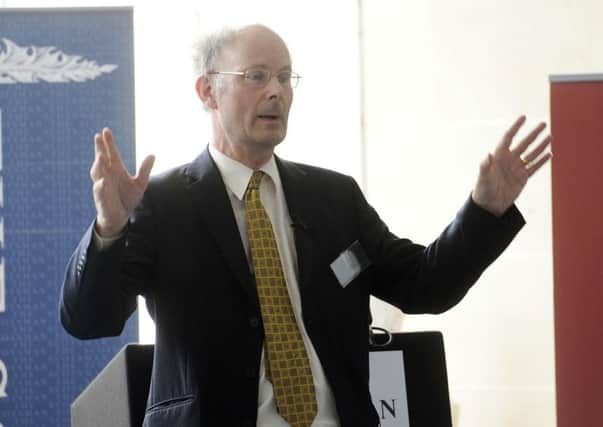John Curtice: Tuition fee policy far from popular


Meanwhile, for those campaigning for independence the policy exemplifies why Scotland should claim the freedom to implement its allegedly more egalitarian ethos more widely.
Yet all is not what it seems from the rhetoric of the political debate. When we look at what the public say we discover that support for free tuition has always been a minority cause in Scotland, and only marginally more popular than in England. Meanwhile, people’s attitudes towards the merits of free tuition appear to have little to do with their willingness to vote for independence.
Advertisement
Hide AdAdvertisement
Hide AdOur graph shows how attitudes towards free university tuition have evolved on both sides of the Border since the advent of devolution. The figures come from NatCen’s Scottish and British Social Attitudes surveys, which have asked people on half a dozen occasions to choose between three propositions: that no university students should have to pay fees, that some should have to do so according to their circumstances, and that every student should have to pay. The graph shows the proportion who say no students should have to pay.
Even when in 2000 Scotland was beginning to take its first steps along a different path from England, eventually switching to the so-called graduate endowment rather than up-front tuition fees, only 38 per cent of people in Scotland said that no students should have to pay fees while they were actually studying.
Although only 5 per cent reckoned that all students should have to pay, no less than 56 per cent believed they should pay something, depending on their circumstances.
These figures were only a little different from those in England. There support for no tuition fees while studying stood at 30 per cent in 2000, while no less than 61 per cent reckoned that the amount that students should have to pay should depend on their circumstances.
Thereafter, support for the principle of free tuition actually fell north of the Border to around 30 per cent, again only a little different from the contemporaneous position in England. Now, according to the most recent reading, taken in 2013, it stands at little more than a quarter (26 per cent) – though this represents something of a turnaround after dropping to just 20 per cent in 2010.
So, if anything, free tuition is even less popular now than it was in the early years of devolution. Equally, even though the policy position in the two countries has never been more different, support for the principle is still only seven points higher than in England.
Given that support for the principle of free tuition is so low, emphasizing the issue would be unlikely to help the Yes side win a majority in the referendum even if those who back the principle were markedly more likely to vote Yes. However, this proves not to be the case. According to the 2013 Scottish Social Attitudes survey, support for free tuition is barely any higher amongst those who say they will vote Yes (28 per cent) than it is amongst those who are inclined to vote No (24 per cent).
Advertisement
Hide AdAdvertisement
Hide AdWe should not be surprised that politicians who have promoted a distinctive Scottish policy should want to argue that what they done is emblematic of the values of the country they seek to serve. But their rhetoric is not always a reliable guide to what voters actually think.
• John Curtice is Professor of Politics, Strathclyde University